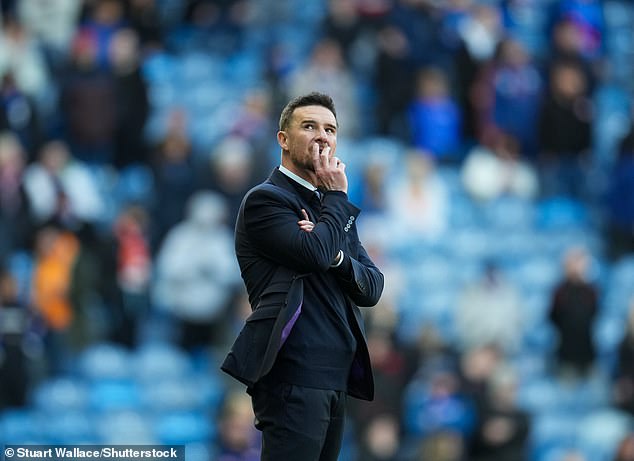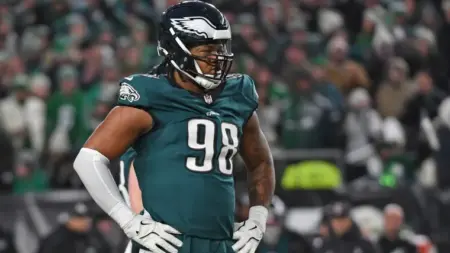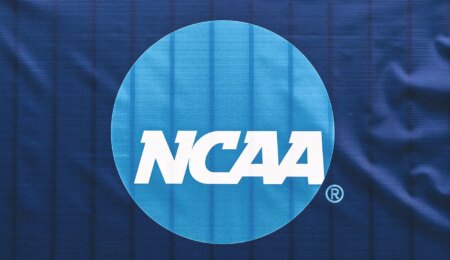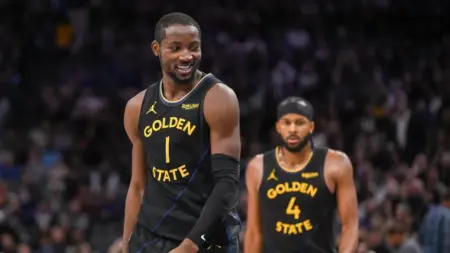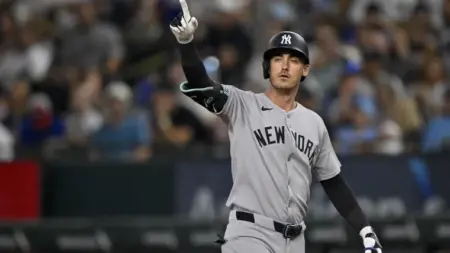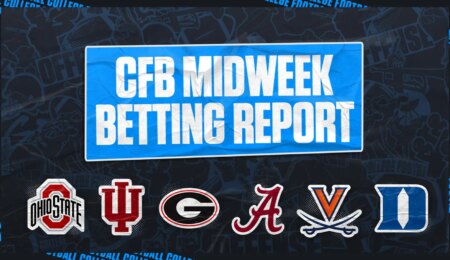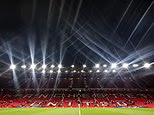Barry Ferguson’s Temporary Tenure: A Fitting Finale to Ibrox’s Curious Chapter
In a way, the whimsical decision to appoint Barry Ferguson as interim manager of Rangers, along with his squad of old pals, serves as a fitting conclusion to the reign of the current leadership at Ibrox. It’s a last perplexing move, a final act of playing to the gallery, and a nostalgic reprise of ‘pyoor Ranjurz men thegither fur auld time’s sake anawrat.’ This spectacle, involving Baz’s Big Orange (or should that be tangerine?) Monster Truck that rolled through Auchenhowie, seems almost theatrical against the backdrop of recent bizarre events at the club. These include Pedro Caixinha’s infamous dogs and caravans, Graeme Murty’s headstands, the stadium closure at the start of the season, a player-trading model that let key assets leave for nothing, and Philippe Clement’s focus on shots at goal despite cup eliminations by lower-tier teams like Queen’s Park. Despite the predictable return to earth at home to Motherwell, Rangers fans seemed to enjoy the comeback win at Kilmarnock in Ferguson’s first game. While it could have been a 4-0 disaster, the temporary appointment brings a bit of light relief, a nostalgic nod to the club’s past, after the tumultuous times they’ve faced recently.
Patrick Stewart: A CEO in the Eye of the Storm
Patrick Stewart, the CEO of Rangers, has faced a whirlwind of challenges since his arrival in December. Initially painted as the strong-willed executive with a firm hand on the tiller, Stewart’s direction has been as erratic as a bag of Monster Munch in a wind tunnel. His first act, a strategic review of the footballing department with American consultants, has produced minimal results beyond the acknowledgment that a sporting director might be needed. Stewart’s support for Philippe Clement, even after the disastrous cup loss to Queen’s Park, highlighted his belief in the team’s European progress, but it also underscored a reluctance to make tough decisions. Even with Clement’s departure following a home defeat to St Mirren, Stewart’s appointment of Ferguson, a manager with no top-flight experience and a mixed record, raises questions about his leadership acumen. If this decision was his, it contradicts his earlier assertions about the club’s underperformance and the need to address deeper issues. If it wasn’t, it paints him as a figurehead, a corporate yes-man who lacks the strength to steer the club through turbulent times.
The Appointing of Ferguson: A Temporary Fix or a Tactical Blunder?
Barry Ferguson, a club legend, is undoubtedly a popular choice among Rangers fans. His return is seen as a move to end the toxicity that has enveloped Ibrox and to reconnect with the fanbase. However, the reality of his managerial CV is sobering. Ferguson’s stint at Clyde failed to secure promotion from League Two, and his time at Kelty Hearts, which did see them rise to the SPFL, ended in an ill-fated spell at Alloa, where he managed only two wins in 15 games. Despite his evident dedication to coaching and learning, this appointment feels like a step back to the old obsession with former players and club employees, a move that sacrifices the club’s European ambitions to appease the disgruntled supporters. If Stewart had the final say in this decision, it undermines his credibility. If it was an order from above, it further diminishes his perceived influence. Either way, the appointment of Ferguson as interim manager, with a UEFA Europa League tie against Jose Mourinho’s AS Roma looming, does not inspire confidence in the club’s long-term prospects.
The Return of Away Fans: A Positive Development for the Old Firm
Thankfully, a touch of commonsense has prevailed in the Old Firm rivalry, with Rangers and Celtic agreeing to allocate four percent of tickets to away fans for the final two derbies of the season. This decision, while modest, is a significant step forward in restoring the derby’s traditional atmosphere. Both managers, Brendan Rodgers and Barry Ferguson, acknowledged the importance of this move on Friday, recognizing it as a positive start. The Old Firm derby has suffered in recent years due to the lack of away supporters, diluting the spectacle and rivalry that made these matches world-renowned. The return of away fans is not just a nod to tradition but a vital move for enhancing the spectacle, drawing in more fans, and preserving the authentic spirit of football. In an era where commercial interests often take precedence, holding onto the essence of the game is essential. The prospective American owners at Rangers must understand this, as the derby’s reputation and the clubs’ brands stand to benefit greatly from a return to the old standards.
Kieron Bowie: Emerging Talent for Hibernian and Scotland
The Edinburgh derby on the horizon offers more than just a thrilling local rivalry; it also provides a platform for emerging talents like Kieron Bowie. A £600,000 signing from Fulham last summer, Bowie has had a frustrating start to his career at Hibs, but his recent performances hint at his potential. Scoring a crucial goal against Dundee United and showing promise in the win over Celtic, the 22-year-old striker is finally making his mark. Bowie’s physical presence, combined with good movement and an eye for goal, could see him complete the season strongly and push for a place in Steve Clarke’s Scotland senior team for the World Cup qualifiers in September. While Che Evans and Tommy Conway are currently the leading strikers, a third spot in the national team is up for grabs. Bowie’s return to form, especially in high-stakes matches like the Edinburgh derby, could be a turning point in his career and a valuable asset for Hibernian and Scotland.
A Critical Juncture for Rangers and Their New Owners
As Rangers enter this pivotal period with an inexperienced interim manager and the looming shadow of a potential American takeover, the club stands at a critical juncture. The upcoming Europa League tie against AS Roma, led by the legendary Jose Mourinho, will be a massive test for Barry Ferguson and his team. Beyond the immediate challenges, the club’s future direction hinges on the ability of Stewart and chairman Fraser Thornton to implement a coherent strategy. While some continuity is necessary during the transition, the recent decisions do little to instill faith in their leadership. The return of away fans to Old Firm derbies and the resurgence of players like Kieron Bowie offer rays of hope, but significant questions remain about the club’s long-term vision and governance. The new owners must be wary of these signs and ensure that Ibrox’s legacy is not further tarnished by short-term thinking and misplaced nostalgia. The road ahead is steep, but with the right leadership and strategic decisions, Rangers can emerge stronger and more resilient.

